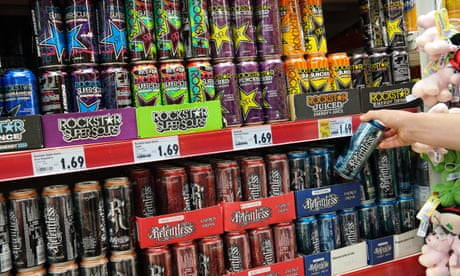
Labour is considering banning the sale of energy drinks to children if it wins power in the general election, it has been reported.
The proposal has been put forward for inclusion in the party’s manifesto, Sky News reports, amid increasing concern over health risks to young people from high-caffeine products.
The ban is not currently Labour policy, a source told the Guardian, and its manifesto commitments will be unveiled closer to the election, expected to take place in the autumn.
A government-commissioned study reported that up to a third of UK children consume at least one energy drink each week.
They are associated with insomnia and poor-quality sleep, according to a large study that suggests just one can a month raises the risk of disturbed sleep, but are marketed as boosters of mental health and physical performance.
Popular among young people in particular, millions consume the products, which contain an average caffeine content of 150mg per litre as well as sugar, vitamins, minerals and amino acids.
Earlier this year, a study involving more than 53,000 people aged between 18 and 35 in Norway shed fresh light on the potential negative effects of energy drinks.
Researchers found those who consumed them every day slept about half an hour less than those drinking them occasionally or not at all.
And the higher the frequency of consumption, the fewer the hours of nightly sleep. But even just the occasional can – one to three times a month – is linked to a heightened risk of disturbed sleep, the researchers found. Their findings were published in the BMJ Open journal.
Men having two or three drinks a week were 35% more likely to have a bedtime after midnight, 52% more likely to sleep less than six hours, and 60% more likely to wake in the night than those who did not or rarely drank them.
Women were 20% more likely to have a bedtime after midnight, 58% more likely to sleep less than six hours, and 24% more likely to wake in the night.
People consuming the drinks daily had more issues overall with waking after falling asleep and took longer to fall asleep, and slept less overall than those not drinking them. The study also found that the more people drank, the less sleep they had.
For women drinking energy drinks daily, 51% reported suffering insomnia, compared with 33% of women who drank them occasionally or never. Among men, 37% of daily drinkers suffered insomnia, compared with 22% of those who rarely or never had the drinks.